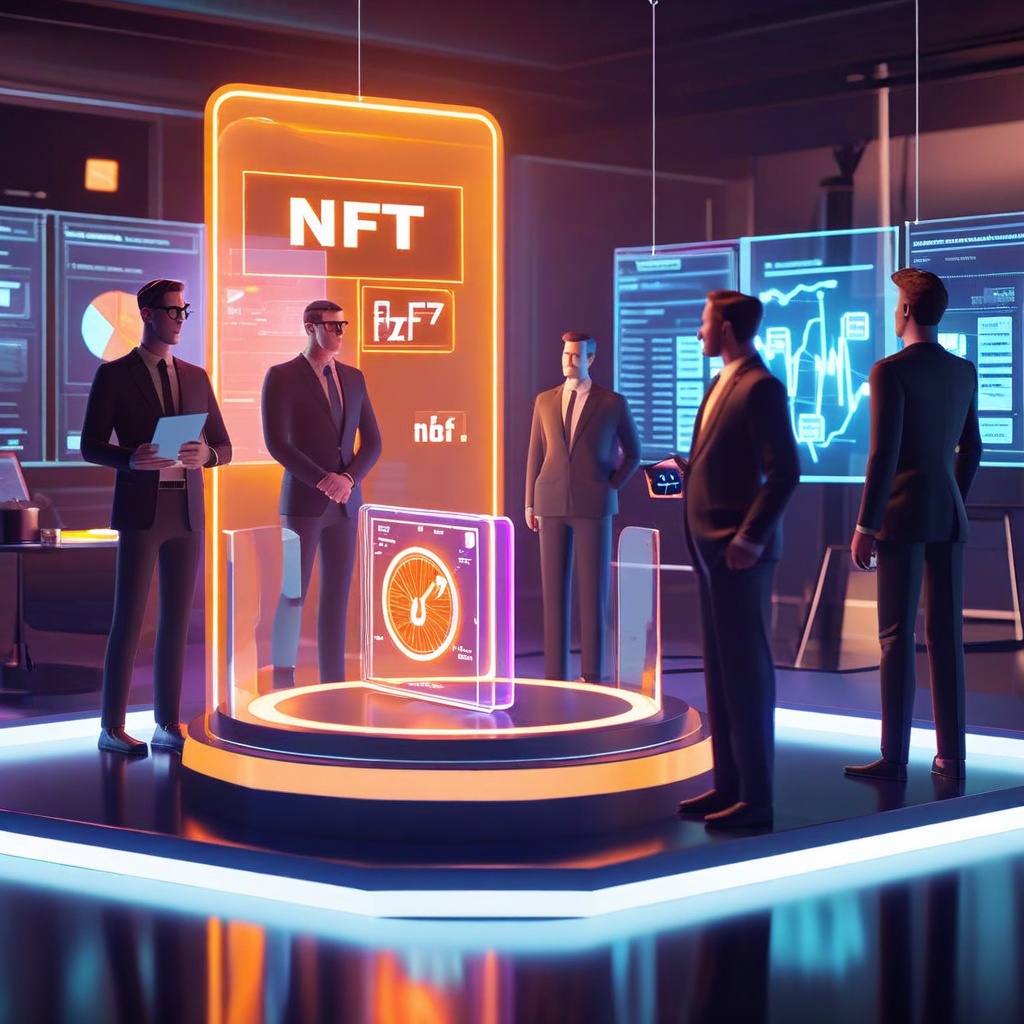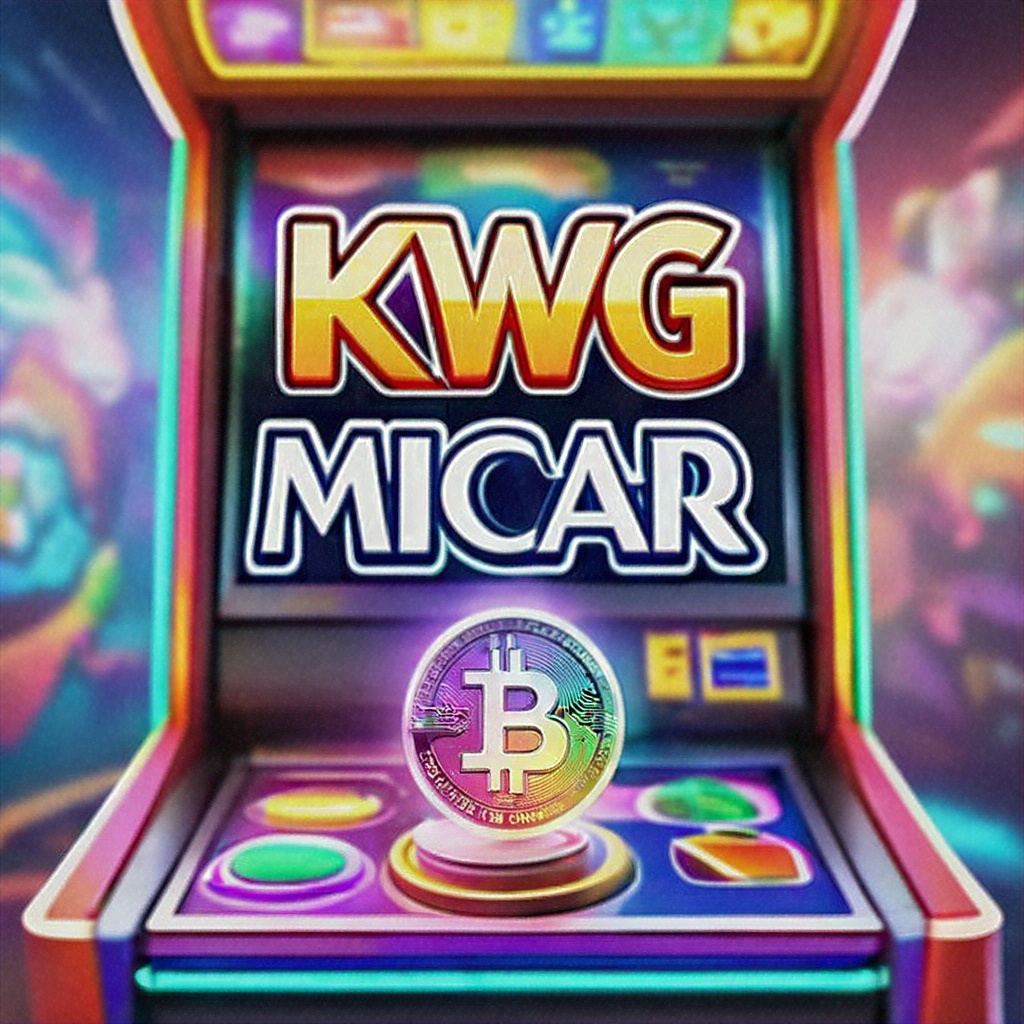-
 Issuance of Stablecoins with a Value of up to EUR 5 Million – What Advantages Does MiCAR Offer Small ART Issuers?
Issuance of Stablecoins with a Value of up to EUR 5 Million – What Advantages Does MiCAR Offer Small ART Issuers?
The issuance of stablecoins is strictly regulated under MiCAR by the provisions on Asset-Referenced Tokens. However, there are exemptions, in particular for issuances not exceeding the equivalent of EUR 5 million. How far-reaching are the exemptions for such issuances?
-
 Qualified Crypto Custody – Are NFTs Regulated as Cryptographic Instruments in Germany?
Qualified Crypto Custody – Are NFTs Regulated as Cryptographic Instruments in Germany?
Since the beginning of the year, crypto custody has been regulated by MiCAR, and the German regulation of crypto custodians according to the KWG has been replaced. However, a small sub-area remains at the national level and in individual cases this can affect NFT.
-
 DORA in Action: What are Critical or Important Functions and Why Does It Matter?
DORA in Action: What are Critical or Important Functions and Why Does It Matter?
DORA aims to minimize risks from digital transformation, but implementing its complex requirements remains a hurdle for many financial enitites. Further interpretation guidance and practical tools are urgently needed.
-
 News on Financial Entities as ICT Third-Party Service Providers and on Subcontracting under DORA
News on Financial Entities as ICT Third-Party Service Providers and on Subcontracting under DORA
The current draft of the lacking regulatory technical standards (RTS) for DORA still contains some ambiguities, particularly regarding the classification of financial entities as ICT third-party service providers. EIOPA has now issued interpretation notes to reduce these ambiguities. There has also been movement on the subject of RTS for subcontracting. An overview.
-
 Token Sale in the MiCAR Era – How Can a Token Issuance be Advertised?
Token Sale in the MiCAR Era – How Can a Token Issuance be Advertised?
Token sales are usually massively digitally advertised and often in creative ways. However, marketing communications for public offerings of crypto assets are now very strictly regulated under MiCAR. What do providers need to consider in this regard?
-
 AiaaS – Proven Solution for New Breakthrough Technologies
AiaaS – Proven Solution for New Breakthrough Technologies
Artificial intelligence (AI) is penetrating more and more areas of life and the economy. AI-as-a-Service (AIaaS) as a cloud-based service is subject to its own legal peculiarities, not least due to the European AI Act. An overview:
-
 DORA Is Live – When Do the First Reports Have to Be Made to BaFin?
DORA Is Live – When Do the First Reports Have to Be Made to BaFin?
Die DORA gilt seit dem 17. Januar 2025 und schon bis zum 11. April 2025 müssen Finanzunternehmen ihre Informationsregister gemäß DORA-Vorgaben bei der BaFin einreichen. Finanzunternehmen sollten sich frühzeitig vorbereiten und sicherstellen, dass die Register formgerecht eingereicht werden.
-
 Units of Account and MiCAR – Can Crypto Tokens Still be Units of Account?
Units of Account and MiCAR – Can Crypto Tokens Still be Units of Account?
How are wrapped tokens and token bridges regulated under MiCAR? What obligations apply to providers and issuers and are there possibilities to realize a token bridge outside the scope of MiCAR?
-
 Interoperability Through Token Bridges – Are Wrapped Tokens Crypto Assets under MiCAR?
Interoperability Through Token Bridges – Are Wrapped Tokens Crypto Assets under MiCAR?
How are wrapped tokens and token bridges regulated under MiCAR? What obligations apply to providers and issuers and are there possibilities to realize a token bridge outside the scope of MiCAR?
-
 Getting Ready for DORA (Part VII) – Which Financial Companies Benefit From the Simplified ICT Risk Management Framework?
Getting Ready for DORA (Part VII) – Which Financial Companies Benefit From the Simplified ICT Risk Management Framework?
From January 2025, DORA will introduce uniform requirements for ICT security, but exceptions for smaller financial institutions will provide a degree of relief. Nevertheless, differences between EU member states will remain due to national implementation leeway.
-
 No Tied Agents Under MiCAR – How Do Liability Umbrellas and Contractually Tied Agents Have to Prepare for MiCAR?
No Tied Agents Under MiCAR – How Do Liability Umbrellas and Contractually Tied Agents Have to Prepare for MiCAR?
Tied agents can currently provide regulated crypto-asset services in Germany under the liability umbrella of a supervised institution without requiring an own license. However, MiCAR no longer provides for this concept. How can liability umbrellas and tied agents respond to this?
-
 MICAR Transition Without National Framework Legislation – What Happens if the German Parliament Does Not Pass the KMAG by the End of the Year?
MICAR Transition Without National Framework Legislation – What Happens if the German Parliament Does Not Pass the KMAG by the End of the Year?
The German government has broken up. But what does this mean for the long-delayed adoption of the accompanying legislation for the MiCAR transition and which legal framework will the German crypto industry operate within as of 30 December 2024?
 Issuance of Stablecoins with a Value of up to EUR 5 Million – What Advantages Does MiCAR Offer Small ART Issuers?
The issuance of stablecoins is strictly regulated under MiCAR by the provisions on Asset-Referenced Tokens. However, there are exemptions, in particular for issuances not exceeding the equivalent of EUR 5 million. How far-reaching are the exemptions for such issuances?
Issuance of Stablecoins with a Value of up to EUR 5 Million – What Advantages Does MiCAR Offer Small ART Issuers?
The issuance of stablecoins is strictly regulated under MiCAR by the provisions on Asset-Referenced Tokens. However, there are exemptions, in particular for issuances not exceeding the equivalent of EUR 5 million. How far-reaching are the exemptions for such issuances? Qualified Crypto Custody – Are NFTs Regulated as Cryptographic Instruments in Germany?
Since the beginning of the year, crypto custody has been regulated by MiCAR, and the German regulation of crypto custodians according to the KWG has been replaced. However, a small sub-area remains at the national level and in individual cases this can affect NFT.
Qualified Crypto Custody – Are NFTs Regulated as Cryptographic Instruments in Germany?
Since the beginning of the year, crypto custody has been regulated by MiCAR, and the German regulation of crypto custodians according to the KWG has been replaced. However, a small sub-area remains at the national level and in individual cases this can affect NFT. DORA in Action: What are Critical or Important Functions and Why Does It Matter?
DORA aims to minimize risks from digital transformation, but implementing its complex requirements remains a hurdle for many financial enitites. Further interpretation guidance and practical tools are urgently needed.
DORA in Action: What are Critical or Important Functions and Why Does It Matter?
DORA aims to minimize risks from digital transformation, but implementing its complex requirements remains a hurdle for many financial enitites. Further interpretation guidance and practical tools are urgently needed. News on Financial Entities as ICT Third-Party Service Providers and on Subcontracting under DORA
The current draft of the lacking regulatory technical standards (RTS) for DORA still contains some ambiguities, particularly regarding the classification of financial entities as ICT third-party service providers. EIOPA has now issued interpretation notes to reduce these ambiguities. There has also been movement on the subject of RTS for subcontracting. An overview.
News on Financial Entities as ICT Third-Party Service Providers and on Subcontracting under DORA
The current draft of the lacking regulatory technical standards (RTS) for DORA still contains some ambiguities, particularly regarding the classification of financial entities as ICT third-party service providers. EIOPA has now issued interpretation notes to reduce these ambiguities. There has also been movement on the subject of RTS for subcontracting. An overview. Token Sale in the MiCAR Era – How Can a Token Issuance be Advertised?
Token sales are usually massively digitally advertised and often in creative ways. However, marketing communications for public offerings of crypto assets are now very strictly regulated under MiCAR. What do providers need to consider in this regard?
Token Sale in the MiCAR Era – How Can a Token Issuance be Advertised?
Token sales are usually massively digitally advertised and often in creative ways. However, marketing communications for public offerings of crypto assets are now very strictly regulated under MiCAR. What do providers need to consider in this regard? AiaaS – Proven Solution for New Breakthrough Technologies
Artificial intelligence (AI) is penetrating more and more areas of life and the economy. AI-as-a-Service (AIaaS) as a cloud-based service is subject to its own legal peculiarities, not least due to the European AI Act. An overview:
AiaaS – Proven Solution for New Breakthrough Technologies
Artificial intelligence (AI) is penetrating more and more areas of life and the economy. AI-as-a-Service (AIaaS) as a cloud-based service is subject to its own legal peculiarities, not least due to the European AI Act. An overview: DORA Is Live – When Do the First Reports Have to Be Made to BaFin?
Die DORA gilt seit dem 17. Januar 2025 und schon bis zum 11. April 2025 müssen Finanzunternehmen ihre Informationsregister gemäß DORA-Vorgaben bei der BaFin einreichen. Finanzunternehmen sollten sich frühzeitig vorbereiten und sicherstellen, dass die Register formgerecht eingereicht werden.
DORA Is Live – When Do the First Reports Have to Be Made to BaFin?
Die DORA gilt seit dem 17. Januar 2025 und schon bis zum 11. April 2025 müssen Finanzunternehmen ihre Informationsregister gemäß DORA-Vorgaben bei der BaFin einreichen. Finanzunternehmen sollten sich frühzeitig vorbereiten und sicherstellen, dass die Register formgerecht eingereicht werden. Units of Account and MiCAR – Can Crypto Tokens Still be Units of Account?
How are wrapped tokens and token bridges regulated under MiCAR? What obligations apply to providers and issuers and are there possibilities to realize a token bridge outside the scope of MiCAR?
Units of Account and MiCAR – Can Crypto Tokens Still be Units of Account?
How are wrapped tokens and token bridges regulated under MiCAR? What obligations apply to providers and issuers and are there possibilities to realize a token bridge outside the scope of MiCAR? Interoperability Through Token Bridges – Are Wrapped Tokens Crypto Assets under MiCAR?
How are wrapped tokens and token bridges regulated under MiCAR? What obligations apply to providers and issuers and are there possibilities to realize a token bridge outside the scope of MiCAR?
Interoperability Through Token Bridges – Are Wrapped Tokens Crypto Assets under MiCAR?
How are wrapped tokens and token bridges regulated under MiCAR? What obligations apply to providers and issuers and are there possibilities to realize a token bridge outside the scope of MiCAR? Getting Ready for DORA (Part VII) – Which Financial Companies Benefit From the Simplified ICT Risk Management Framework?
From January 2025, DORA will introduce uniform requirements for ICT security, but exceptions for smaller financial institutions will provide a degree of relief. Nevertheless, differences between EU member states will remain due to national implementation leeway.
Getting Ready for DORA (Part VII) – Which Financial Companies Benefit From the Simplified ICT Risk Management Framework?
From January 2025, DORA will introduce uniform requirements for ICT security, but exceptions for smaller financial institutions will provide a degree of relief. Nevertheless, differences between EU member states will remain due to national implementation leeway. No Tied Agents Under MiCAR – How Do Liability Umbrellas and Contractually Tied Agents Have to Prepare for MiCAR?
Tied agents can currently provide regulated crypto-asset services in Germany under the liability umbrella of a supervised institution without requiring an own license. However, MiCAR no longer provides for this concept. How can liability umbrellas and tied agents respond to this?
No Tied Agents Under MiCAR – How Do Liability Umbrellas and Contractually Tied Agents Have to Prepare for MiCAR?
Tied agents can currently provide regulated crypto-asset services in Germany under the liability umbrella of a supervised institution without requiring an own license. However, MiCAR no longer provides for this concept. How can liability umbrellas and tied agents respond to this? MICAR Transition Without National Framework Legislation – What Happens if the German Parliament Does Not Pass the KMAG by the End of the Year?
The German government has broken up. But what does this mean for the long-delayed adoption of the accompanying legislation for the MiCAR transition and which legal framework will the German crypto industry operate within as of 30 December 2024?
MICAR Transition Without National Framework Legislation – What Happens if the German Parliament Does Not Pass the KMAG by the End of the Year?
The German government has broken up. But what does this mean for the long-delayed adoption of the accompanying legislation for the MiCAR transition and which legal framework will the German crypto industry operate within as of 30 December 2024?


